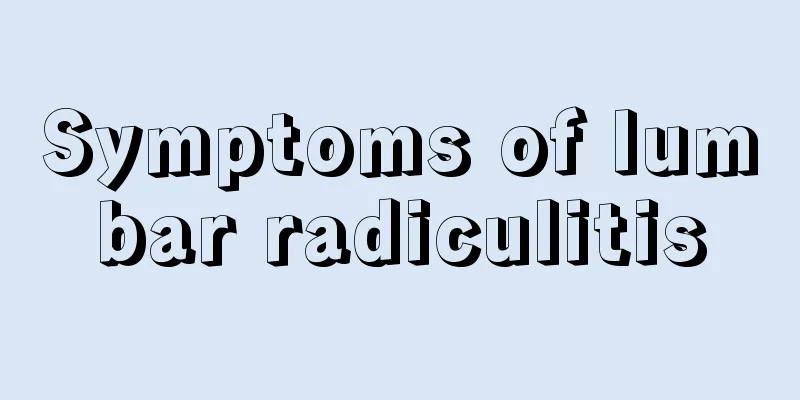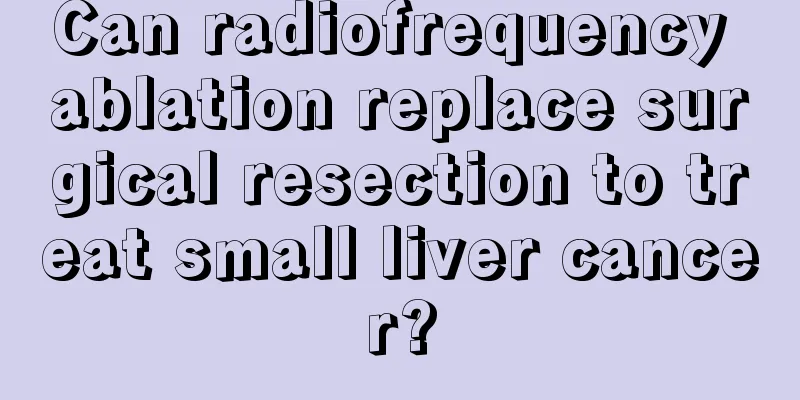If your five senses suddenly fail, be alert to intracranial tumors

|
There are many symptoms caused by intracranial tumors. Once symptoms are found, you must go to a regular hospital for treatment in time. Many people are afraid of the word "tumor" . Indeed, in outpatient clinics, many patients have tumors that are already very large when they are discovered. This has many adverse effects on the surgery and the patient's prognosis. In fact, most intracranial tumors still have some "signs" in the early stages of the disease. We should pay special attention when we have "different five senses symptoms such as vision, hearing, smell, pronunciation, etc." These are "warning signals", but people often ignore them, resulting in missing the opportunity to detect tumors in time and provide timely diagnosis and treatment. Long-lasting headache Headache is one of the common clinical symptoms. Generally speaking, occasional headaches or headaches caused by changes in body position will not be a big problem, but if the headaches last for a long time, you should take it seriously. Long-term or frequent headaches may be a precursor to a serious illness, and the pain may sometimes be accompanied by nausea and vomiting. Headache is also a common symptom of increased intracranial pressure, with an incidence rate of 80% to 90%. The symptoms are mild at first, then worsen continuously and paroxysmically, and are characterized by being aggravated in the early morning. Mental disorders Some areas where intracranial tumors grow may cause mental abnormalities, clinically characterized by emotional disorders, sensory dullness, and memory loss, such as apathetic expression, slow reaction, few words, depression, silly smile, disorganized speech, and lack of self-control; recent memory loss may be significant, and the patient may even forget the names and ages of family members; and difficulty in understanding, calculating, and orientation. Therefore, when elderly people show mental abnormalities, in addition to suffering from mental illness, they should also be alert to intracranial tumors and need further examination. Decreased vision Many elderly people think that vision loss is caused by presbyopia. In fact, intracranial tumors can also cause vision loss, which is different from presbyopia. Presbyopia can be corrected by wearing glasses, but the vision loss caused by intracranial tumors cannot be corrected by wearing glasses. In addition, intracranial tumors can also cause visual field defects, but professional instruments are needed for examination in the early stages. By the time you discover you have visual field loss, it is often already very serious. Progressive hearing loss If there is no history of otitis media or trauma, and only one ear has progressive hearing loss, accompanied by tinnitus on the same side, it is likely caused by an intracranial tumor compressing the auditory nerve. Since people use both ears to hear, it is difficult to detect hearing loss in one ear, unless you frequently use one ear to answer the phone, then you will notice that you suddenly can't hear. In fact, the symptoms caused by intracranial tumors are diverse, and the ones mentioned above are only those that are easily ignored and delayed in treatment. The brain is the headquarters of the human body and plays an important role in controlling the entire body, but some parts of the body have not yet been discovered to have any function and are called dumb areas. If a benign tumor grows in a silent area, the patient may not feel any discomfort in the early stages. By the time symptoms are discovered, the tumor may have grown very large. Some surgeries are extremely difficult and may not even be completely removed, so the surgical risks and the possibility of recurrence are very high. However, if the malignant tumor grows in a relatively non-functional area and can be detected and operated on early, the chance of recurrence is actually smaller. Therefore, if you find the above symptoms in your daily life, you must go to a regular hospital for treatment in time. Decreased sense of smell or phantom smells Decreased sense of smell is generally difficult to detect. If you accidentally discover decreased sense of smell on one or both sides, in addition to seeing an ENT specialist, you should highly suspect intracranial lesions involving the olfactory nerve, such as anterior skull base/olfactory groove meningioma, olfactory blastoma, or chordoma involving the anterior skull base. If you smell a strange odor (olfactory hallucination) even though there is no peculiar smell around you, it may be a special manifestation of epilepsy and you should be highly alert to tumors on the medial side of the temporal lobe. Slurred speech Slurred speech is a typical precursor sign of brain disease. If 70%-80% of the words are still unclear despite your best efforts to pronounce them, you should consider that it is related to brain disease. In addition to receiving timely treatment, such patients should also persist in practicing articulation and pronunciation to prevent further deterioration of their speech function. In short, if the above symptoms occur, in addition to going to the department for examination of the corresponding symptoms, it is recommended to go to the neurosurgery or neurology department for examination. It is best to do a plain scan of MRI first, and then perform an enhanced scan if intracranial space-occupying lesions are found. In this way, most intracranial lesions can be found. If only CT scan is performed, the diagnosis may be missed because some lesions cannot be shown on CT scan, especially lesions in the posterior cranial fossa! The symptoms caused by intracranial tumors are actually diverse. The ones mentioned above are just those that are easily ignored and lead to delayed treatment. The brain is the headquarters of the human body and plays an important role in controlling the entire body. However, there are some parts whose functions have not yet been discovered and are called dumb areas. If the tumor grows in a silent area, the patient may not feel any discomfort in the early stage. By the time symptoms are discovered, the tumor has grown very large. Some surgeries are extremely difficult and may not even be completely removed. The surgical risks and the possibility of recurrence are very high. However, if the tumor is discovered early and grows in a relatively non-functional area, if the surgery is thorough, not only will the chance of recurrence be small but the prognosis may also be better. |
>>: 5 symptoms indicate that your kidneys are sick
Recommend
How to treat swollen tonsils in the throat
Swollen tonsils are something that everyone has e...
How much does colon cancer surgery cost
Rectal cancer is a common malignant tumor in the ...
There are black spots on the belly
There are many common problems in life. We must u...
Why is follow-up examination important for kidney cancer patients?
Follow-up examinations for kidney cancer patients...
Is colitis serious? These symptoms should be taken seriously
People's pace of life in today's society ...
The facial cleanser has become thinner after being exposed to the sun
Facial cleanser is solid when stored at room temp...
Can lung adhesions heal themselves?
Lung adhesions are usually caused by some lung di...
Where do blackheads grow
Not everyone has blackheads. Some people are born...
What is the cleanest way to wash fruit?
When fruit farmers grow fruits, in order to preve...
The efficacy and function of fennel seeds
In our daily life, we often eat fennel, mainly as...
What are the functions of Cassia seed health pillow core
Cassia seed is a health care material with many f...
What gifts are practical?
Our country is particular about reciprocity. We u...
What are the routine examination items for teratoma
Ovarian immature teratoma, this tumor is very mal...
Olive oil can be used in many ways, including beauty and cooking
The olive oil we are talking about refers to some...
How to treat headache, nausea and chest tightness?
If there is something wrong with the body, it is ...









